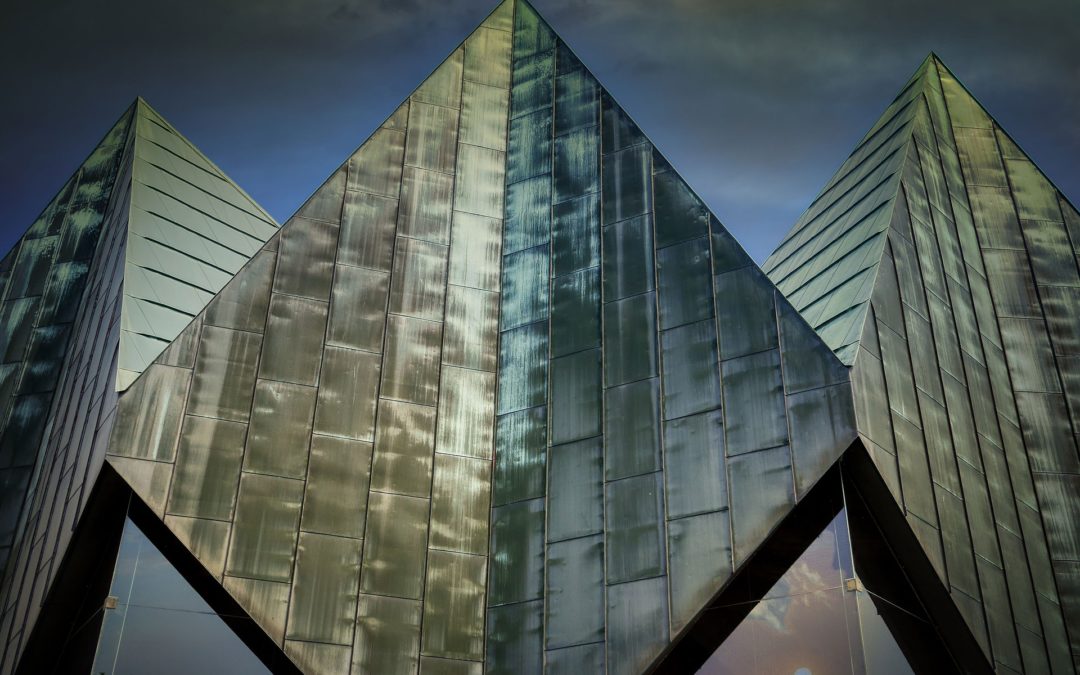Whether you need to protect the exterior of a building or improve its aesthetics, metal cladding fits the bill. From commercial sites to high-end residential installations, cladding sheets are lightweight, durable, and versatile. Aluminium cladding is a popular choice, but will it rust or corrode? And is it a good fit for your project? Read on to find out more.
What is aluminium cladding?
Aluminium cladding is a great choice when you want to create a clean and streamlined finish. The use of this metal is common in high-quality cladding for its aesthetic appeal and superior protection.
In addition, there are multiple installation methods to ensure you can achieve exceptional levels of finish and safety. These methods include VariAL rain screen systems and the Genius non-combustible range that offer ultimate protection.
Will aluminium cladding rust?
So should you choose aluminium cladding or look at the alternatives? And are they rust-resistant?
Steel cladding is a heavier option that’s also highly durable. Its high ductility makes it easy to weld on-site, and it offers high levels of protection for a building’s facade. However, it’s typically used for commercial and industrial applications and needs to be treated with a polymer lacquer or galvanised to prevent rust.
One of the reasons aluminium is such a popular choice for cladding is that it won’t rust like untreated steel. In turn, that makes it an aesthetic alternative for residential projects as well as high rise buildings and office blocks.
Aluminium is highly rust-resistant, even when exposed to moisture for prolonged periods. So if your development is in a coastal location, aluminium cladding could be the intelligent choice.
However, aluminium can corrode — but the effect can be pretty surprising.
Once steel corrodes, it turns the familiar rusty red and the iron oxide flakes off to expose the metal underneath. In time, your cladding will begin to rust away.
But aluminium oxide doesn’t destroy the metal. Instead, it protects it. Once the entire outer surface is oxidised, the process stops, and the cladding is coated in a highly protective layer that looks indistinguishable from the original aluminium.
Why aluminium cladding is the best choice
So what makes aluminium cladding the best choice for your project?
To begin with, aluminium cladding is prized for its strength to weight ratio. Because it’s lightweight yet incredibly strong, aluminium is much easier to work with than other metals, whether you’re using manual labour or a crane. It’s also the ideal material for over-cladding, making it extremely popular in renovation and refurbishment projects.
If you’re looking for a cost-effective, low maintenance cladding solution, aluminium cladding is a great choice. And because it’s often non-combustible, you’ll be adding another layer of
Every project has an eye on sustainability, and aluminium can help to reduce your environmental impact in several ways. First, cladding acts as insulation and can help to improve the energy efficiency of any building. Next, aluminium is 100% recyclable, significantly reducing any waste.
Aluminium is also highly workable and lends itself to creative and adventurous cladding designs. Unusual configurations and patterns are highly achievable, and there’s a dazzling range of textures, colours and even different sheet lengths to achieve your design goals.
RGB Facades cover the spectrum
As market leaders in cladding, RGB Facades works alongside industry specialists to create a range of versatile and high-quality solutions for your next construction project.
We’ll help you create a cost-effective facade precisely tailored to your requirements, so download our brochure or contact us today and we’ll provide the right material at a competitive price.

